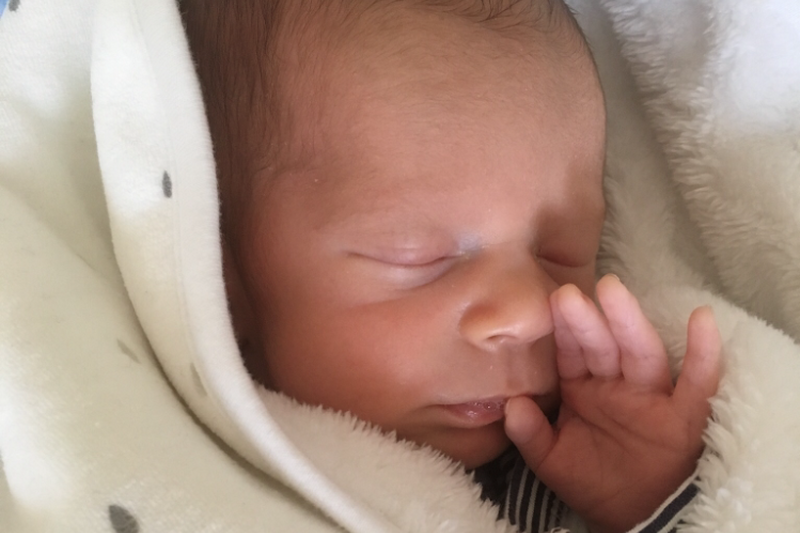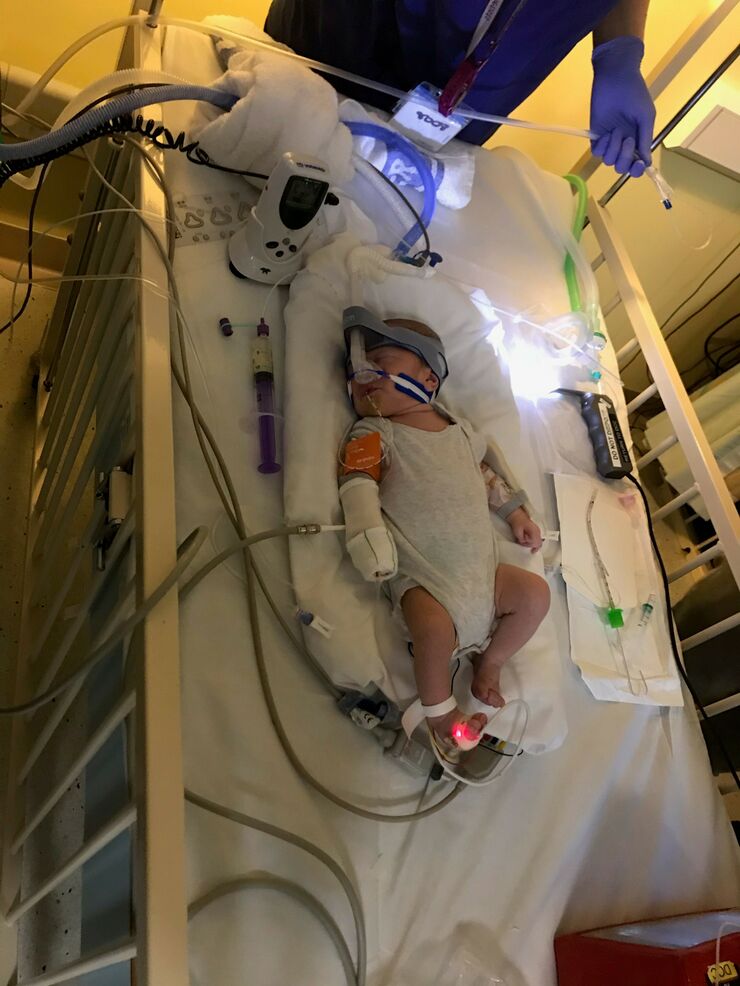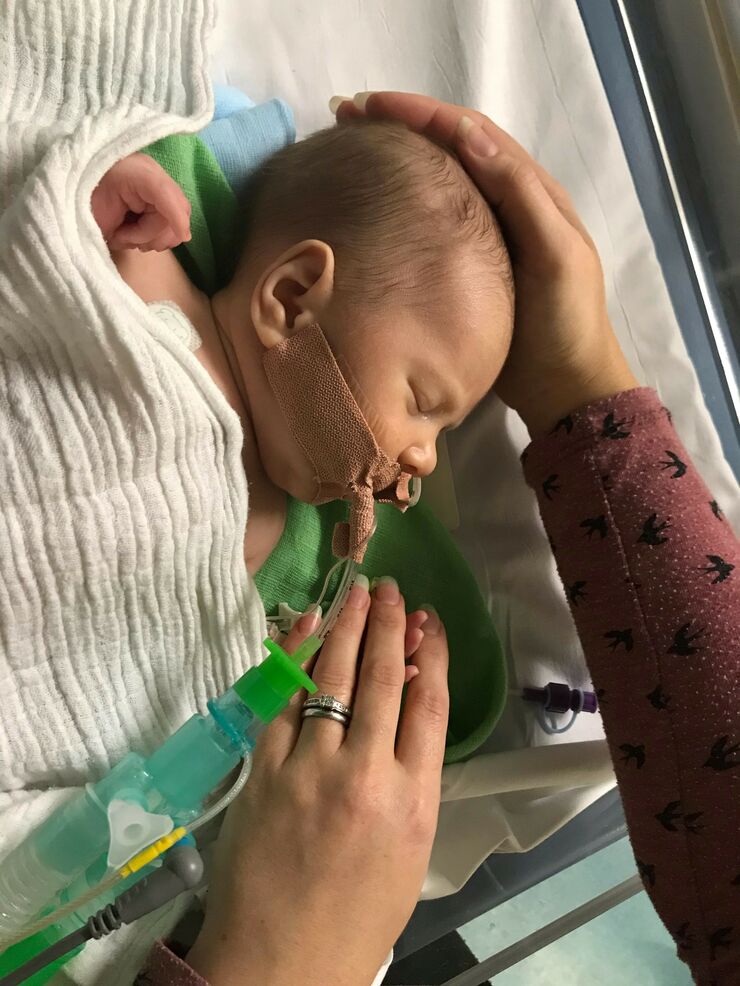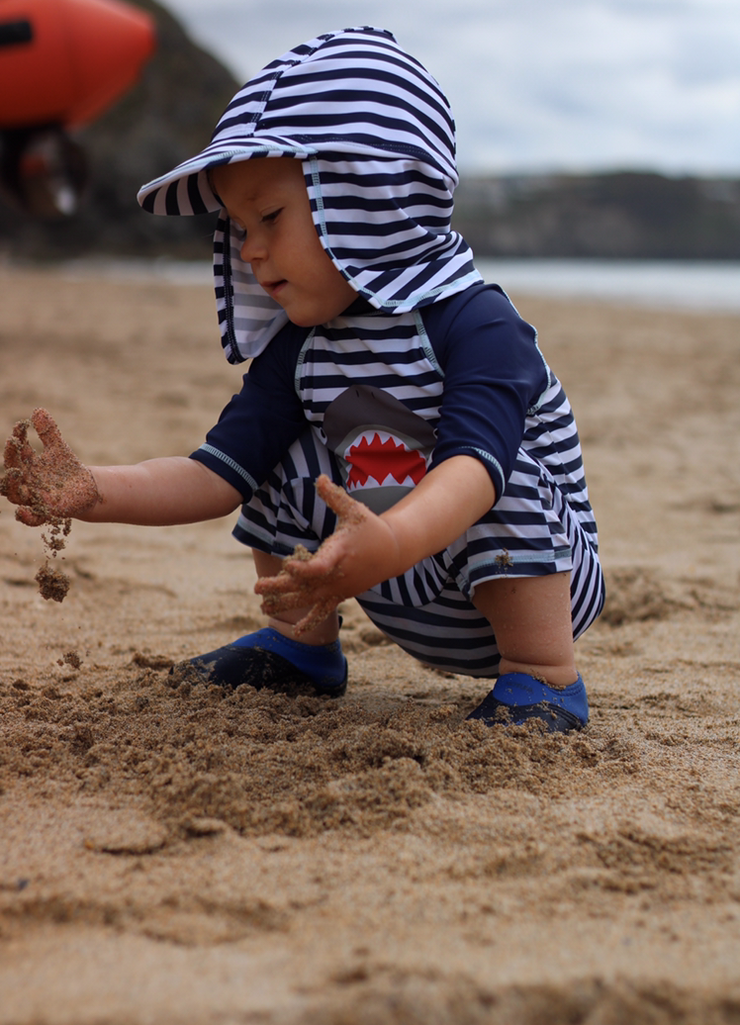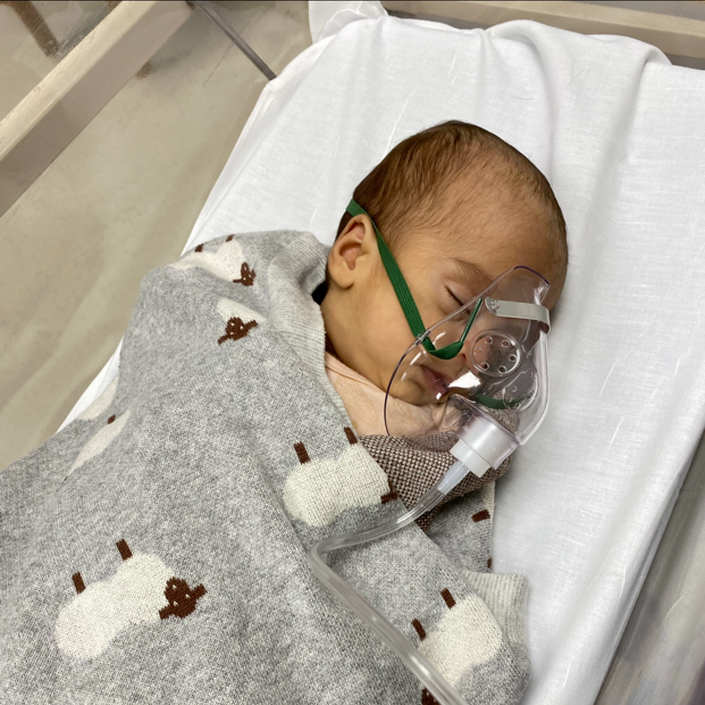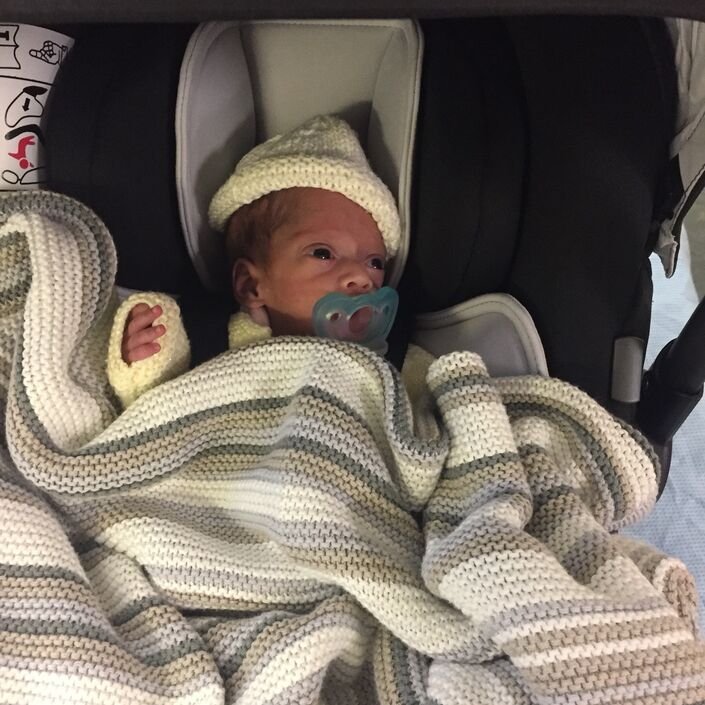When my daughter was born at 32 weeks in 2015, I had no idea RSV existed. Thankfully, as she was spring born, the spring and summer months with a premature baby were kind to us.
Our son was then born five weeks early in Autumn 2018 and discharged from the hospital the next day. At four weeks old (so still only 39 weeks gestation), our baby boy developed a cold – it wasn’t anything major, he just sounded a bit congested and had a little cough. I then noticed he started to pause when breathing every so often. I called the doctors who arranged for our son to be seen at another surgery by a locum doctor.
We explained that he was premature, was rather congested and was pausing in breathing every so often. We were told that “premature babies do that sometimes” or words to that effect. Having had a premature baby before who didn’t do that, the explanation seemed rather strange but I thought maybe I was being over-cautious. The following day he still wasn’t any better and that evening he wouldn’t wake for a feed. When I tried feeding him, he instantly threw it back up.
I rang the doctors the following day (Friday) and was seen at our own doctor’s surgery. The doctor noticed on examination the pauses in breathing and called our nearest hospital. After speaking with a paediatrician, we were asked to take our baby boy to the hospital to be seen in the Paediatric Assessment Unit. They checked him over, swabbed him for RSV and kept us in overnight for monitoring. I’m so thankful that they took that decision as that evening his oxygen monitor kept dipping.
The medical staff came to see him in the early hours of the morning and realised that he needed manual stimulation to encourage him to breathe. He was then moved to HDU, given caffeine and put on CPAP. Whilst I was scared, I was still none the wiser about how bad things were. The nurse then asked how quickly my husband could get to the hospital and the words, “he’s not very well at all” still haunt me to this day.
